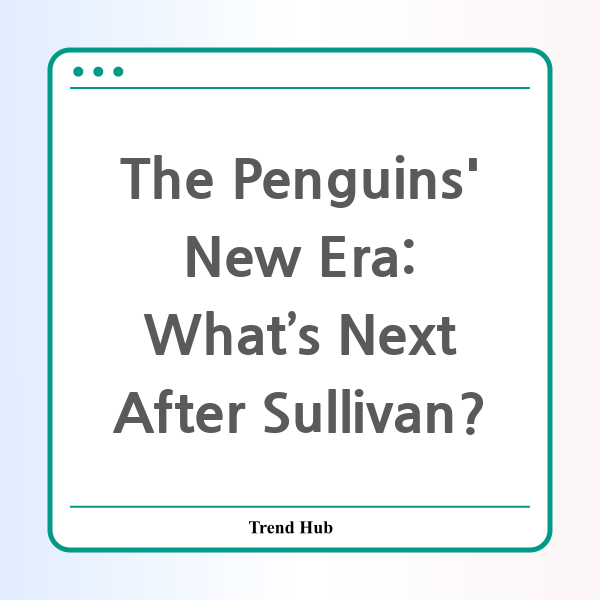* This website participates in the Amazon Affiliate Program and earns from qualifying purchases.

What does the future hold for the Pittsburgh Penguins now that Mike Sullivan has been let go? The recent decision marks a pivotal moment for the franchise, ushering in a new era under General Manager Kyle Dubas. With this move, are we witnessing the dawn of a renewed vision for the Penguins?
The Penguins have a rich history, filled with triumphs and challenges. Mike Sullivan, who led the team to consecutive Stanley Cup victories in 2016 and 2017, had become a figure synonymous with success for most of his tenure. However, as time went on, his coaching style and strategies fell victim to stagnation. The team’s inability to win a playoff series since 2018 and their recent failures to make it to the postseason signaled a need for change.
Dubas, known for his analytical approach and bold decision-making, recognized that NHL coaches seldom win, rebuild, and win again in the same location. This insight led to the decision to part ways with Sullivan, allowing the organization to move forward without the shadow of past disappointments hanging over it. Dubas aims to establish a new identity for the Penguins, one that embraces youth and innovative coaching.
As the Penguins look for Sullivan’s replacement, many expect the new coach to mark a significant departure from the previous regime. Dubas appears inclined to find a fresh face with a record of success, someone who can introduce innovative strategies and inspire a new generation of players. The pool of potential candidates is full of promising coaches, each bringing unique strengths to the table.
Among the names floated are David Carle and Todd Nelson. Carle, who recently led Denver University to NCAA championships, is gaining traction as a favorite. At just 35, he represents the youthful energy that the Penguins could benefit from. Nelson, on the other hand, has a wealth of experience, including three AHL championships, and has developed a keen understanding of building winning cultures. Both candidates could revitalize a locker room that has grown too comfortable in mediocrity.
However, the choice of coach will not just impact the players already in the system but could also shape future acquisitions and the overall culture of the franchise. Many in the Penguins’ community are eager for a transformation that extends beyond the immediate roster—an evolution that addresses the long-term sustainability of success.
For the Penguins to evolve into a legitimate contender, the new coach must also instill a sense of accountability and discipline. The franchise has been characterized by veteran players who were merely coasting on their past achievements. Moving away from this mindset is crucial in establishing a team that not only competes but thrives.
Dubas has made it clear that the plan isn’t solely about making the playoffs—it's about developing a team that can compete for championships year after year. This requires a strategic approach that may take several seasons to fully come to fruition. The Penguins must focus on nurturing younger talent while simultaneously re-evaluating the role of their veteran players.
As the Penguins embark on this new journey, the excitement is palpable. Fans and analysts alike are eager to see how Dubas will shape this new identity, one that aims to restore glory to the Penguins organization. With fresh leadership and a renewed focus on development and innovation, the potential for success is immense.
The future is bright, and the Penguins’ new chapter is just beginning. As the team seeks to carve out its place in the NHL landscape, the journey toward becoming a true contender will undoubtedly feature both challenges and triumphs. After all, in sports, every ending is merely a new beginning.
* This website participates in the Amazon Affiliate Program and earns from qualifying purchases.